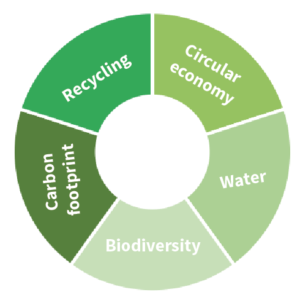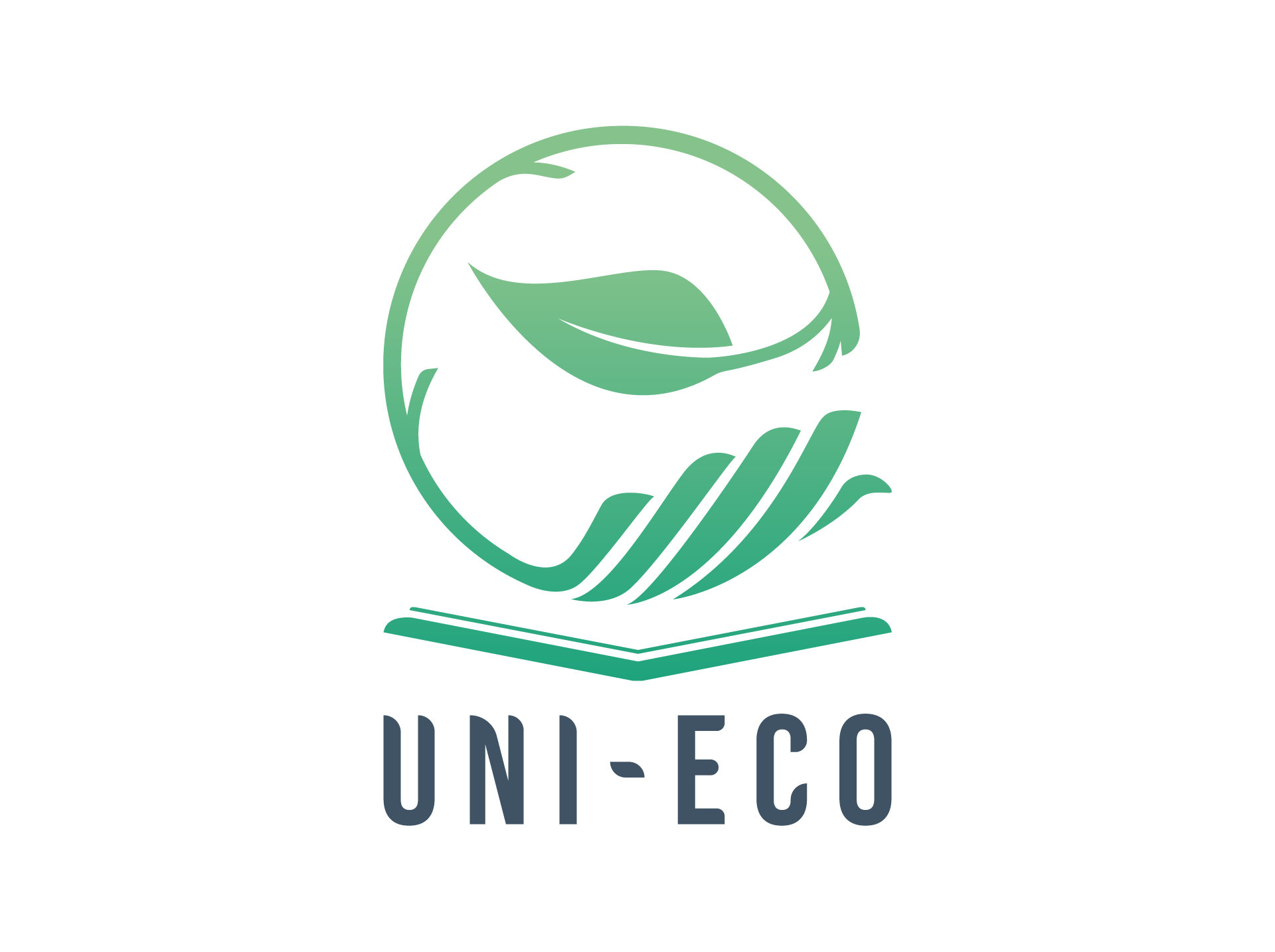Rationale
UNI-ECO aims at responding to the need to build social and environmental sustainability into the core ethos of modern university.
Beyond this, as large, connected human structures, universities have a strong economic, social and ecological impact on their environment, and consequently they have further incentives to integrate sustainability at the basis of their activities.
Inspiration
UNI-ECO takes inspiration in the Sustainable Development Goals, identified by the United Nations (UN) in 2015 as a roadmap for supporting change at all scales.
UNI-ECO is also rooted in the Green Deal proposed by the new European Commission and the support for structural university initiatives under the Erasmus + programme.
Finally, UNI-ECO marks a decisive step in the cooperation between 5 European universities engaged in an unprecedented convergence effort through the CHARM-EU alliance, which places sustainability at the heart of its strategy and allows partners to take advantage of each other’s experience with regards to sustainable development on campus.
Target group
UNI-ECO is rooted in a bottom-up approach. The target group of the project is the entire university community, i.e. students, academic and non-academic staff members.
In the UNI-ECO project we wish to design sustainable campuses, but it is students and HEI staff who will bring it to life by taking action.
The concerned target group is university population including students and staff covering the whole HEI hierarchy axis. The approach that UNI-ECO has selected is a bottom-up one in order to start this transformation from the basis of each campus focusing firstly on the campus needs and secondly on its perspectives by activating all possible actors.
Activities
Empty
IO1 – State of play
In the first phase of the UNI-ECO project, the partner universities will carry out a state of play of sustainable development on campuses in order to see to what extent European universities are engaging in the green transition and how they are implementing a comprehensive strategy to reduce their impact on the environment.
Objectives?
- to better understand the motivations and aspirations of university students and staff on issues related to sustainable development
- to identify the capacities and needs of each institution in terms of structure and operations
A survey will be conducted on campus users between April and October 2020 in order to understand their aspirations, to generate a state of play of practices and commitment on a daily basis and an overview of the topics related to sustainable development that are important to them.
Simultaneously, each partner university will compile an inventory of institutional practices to analyse the internal and external factors favouring or hindering the implementation of a global strategy.
Outcomes?
- Five university reports for internal use, identifying the strengths and weaknesses in key areas
- A synthesis report (Needs Analysis) providing a state of play on challenges and opportunities for universities in Europe
This report will allow the identification of priorities and specific goals for outreach activities and the thematic focus of the green challenges to be taken up by campus users within the framework of the project (more information in the IO3 section). Indeed, the UNI-ECO partner universities all have different levels of sustainable development actions implemented in their campus which means that the objectives of each partner university may vary.
The longer-term objective is to monitor changes in attitudes and operations by including these surveys in a self-evaluation plan for universities.
Leading partner
Eötvös Loránd Tudományegyetem (ELTE)
Duration
from October 2019 till October 2020 (12 months)*
* calendar subject to changes due to the COVID-19 situation
IO2 – E-learning training modules
Sustainable development is everyone’s business: each person can make a daily commitment, at his or her own level, to adopt eco-responsible gestures and reduce his or her personal impact on the environment. This is the objective of the UNI-ECO project’s awareness actions, which will take the form of online modules, accessible to all campus users.
The second phase of the UNI-ECO project consists of the design of innovative and open access training units for students, academic and non-academic staff members who will help change their behavior within the institution.
5 online training modules will be designed in accordance with the priority themes identified by the partner universities for awareness raising during the first phase (more information in IO1):

With an average duration of 2 to 3 hours and playful content developed by experts in each partner university, these modules will be accessible to all on the UNI-ECO platform (more information in IO3).
A virtual badge or certificate will be delivered at the end of each completed module in order to allow its recognition.
Leading partner
Trinity College Dublin
Duration
from April 2020 till August 2022 (29 months)*
* calendar subject to changes due to the COVID-19 situation
IO3 – Online Living Lab
Beyond individual commitment, the UNI-ECO project aims to support the commitment of the university community as a collective. For actions in favour of a greener campus to have a significant impact, it is necessary to encourage collaboration between students, academic and non-academic staff members, in order to build on the complementarity of the skills of each.
In the third phase of the UNI-ECO project, an “Online e-Living Lab for Sustainable Higher Education Institutions” will be designed as a common space to gather evolving scientific data, propose projects and interact in an innovative and bottom-up approach.
Acting for a greener campus with the “green challenges”
This will be the starting point: UNI-ECO partners will launch the “green challenges” campaign on their respective campuses on priority themes identified in the first phase (more information in IO1) and related to the Sustainable Development Goals (SDGs) of the United Nations.
Campus users will be able to challenge themselves by proposing their own team projects, or by supporting existing projects. They will be able to send their applications on the UNI-ECO platform.
A committee of experts in each university will select the most relevant projects and support their implementation.
The selected projects will be presented to the whole university community at the UNI-ECO Summer School in Dublin in May 2021*.
Development of a resource platform
The teams formed to engage in the green challenges will have access to a dedicated online space, the “Living Lab”, where they will be able to obtain information, exchange ideas and coordinate the implementation of their mini-project.
Indeed, the UNI-ECO website will host a platform dedicated to sustainable development in the partner universities. By logging in to the platform, campus users will be able to access to:
- the training modules (more information in IO2)
- information on sustainable development in universities
- the green challenges and “Living Lab”
The platform will be regularly enriched and will serve as a privileged source of information on the project, on the topic of sustainable development in Higher Education and on citizen engagement for the environment.
Leading partners
CESIE & Université de Montpellier (UM)
Duration
From October 2019 till August 2022 (35 months)*
* calendar subject to changes due to the COVID-19 situation
IO4 – Roadmap for sustainability
During the last phase of the UNI-ECO project, a Road Map for any Higher Education Institution willing to launch a bottom-up approach for student and staff empowerment on sustainable development issues, including best practices and recommendations, will be developed.
This Road Map will propose solutions on how to involve directly Higher Education Institutions students and staffs in the creation of a sustainable campus through 3 major challenges:
- raising awareness
- foster cooperation
- contribute
The goal is to share the knowledge, experience and good practices gained in UNI-ECO in order to further deepen the understanding of sustainable development, thereby enabling the interested institutions in Europe and beyond, and to implement and adapt these innovative practices within their local context.
Leading partner
Universiteit Utrecht (UU)
Duration
from December 2020 till June 2022 (19 months)*
* calendar subject to changes due to the COVID-19 situation

UNI-ECO is a “Strategic Partnership” co-financed by the Erasmus+ programme of the European Commission
Erasmus+ Strategic Partnerships are transnational projects aiming to support the development, transfer and/or implementation of innovative practices as well as the implementation of joint initiatives promoting cooperation, peer learning and exchanges of experience in the fields of education, training, and youth at European level.
Strategic Partnerships provide opportunities for a wide variety of public, private, and non-governmental organisations to implement a broad range of activities in the fields of higher education, school education, vocational education and training, adult education, and youth.

